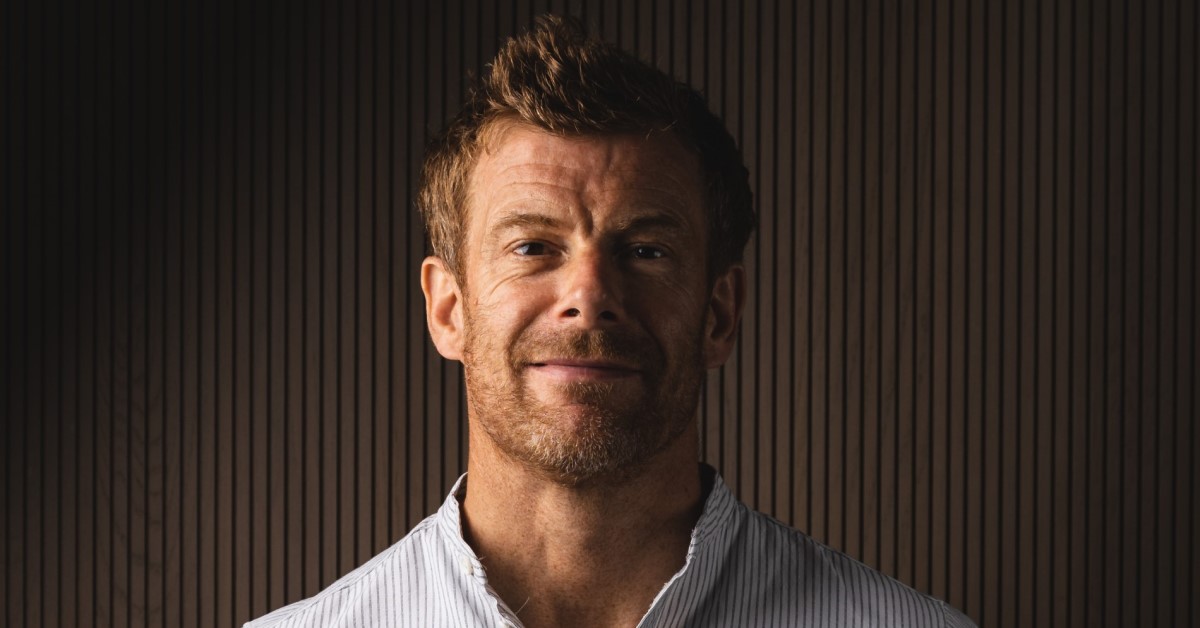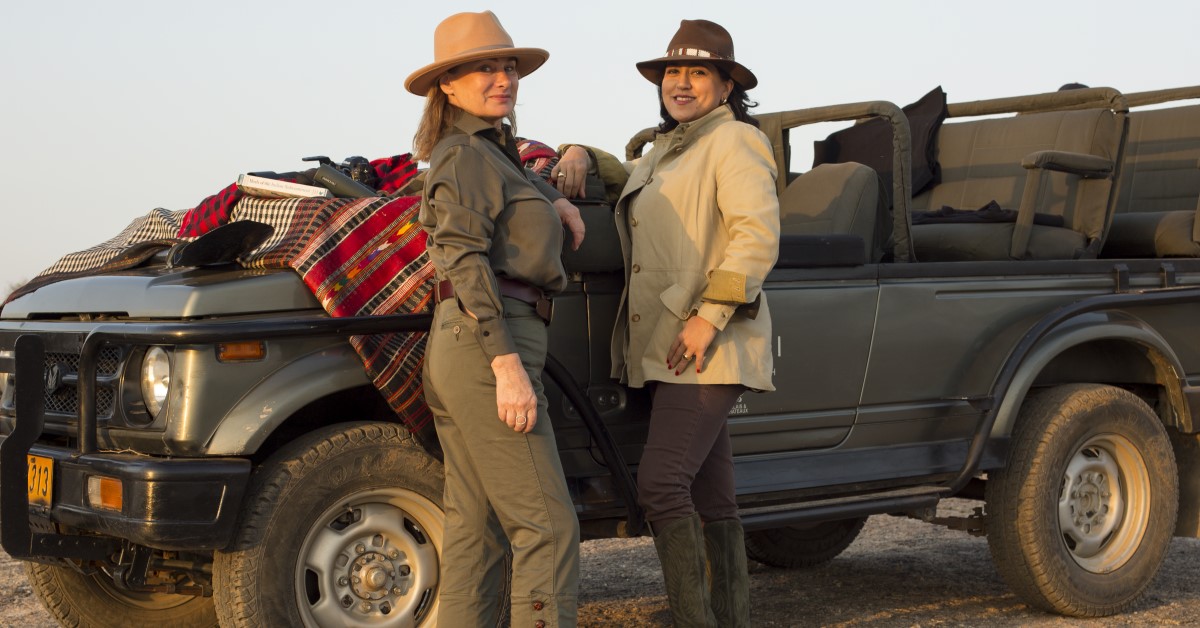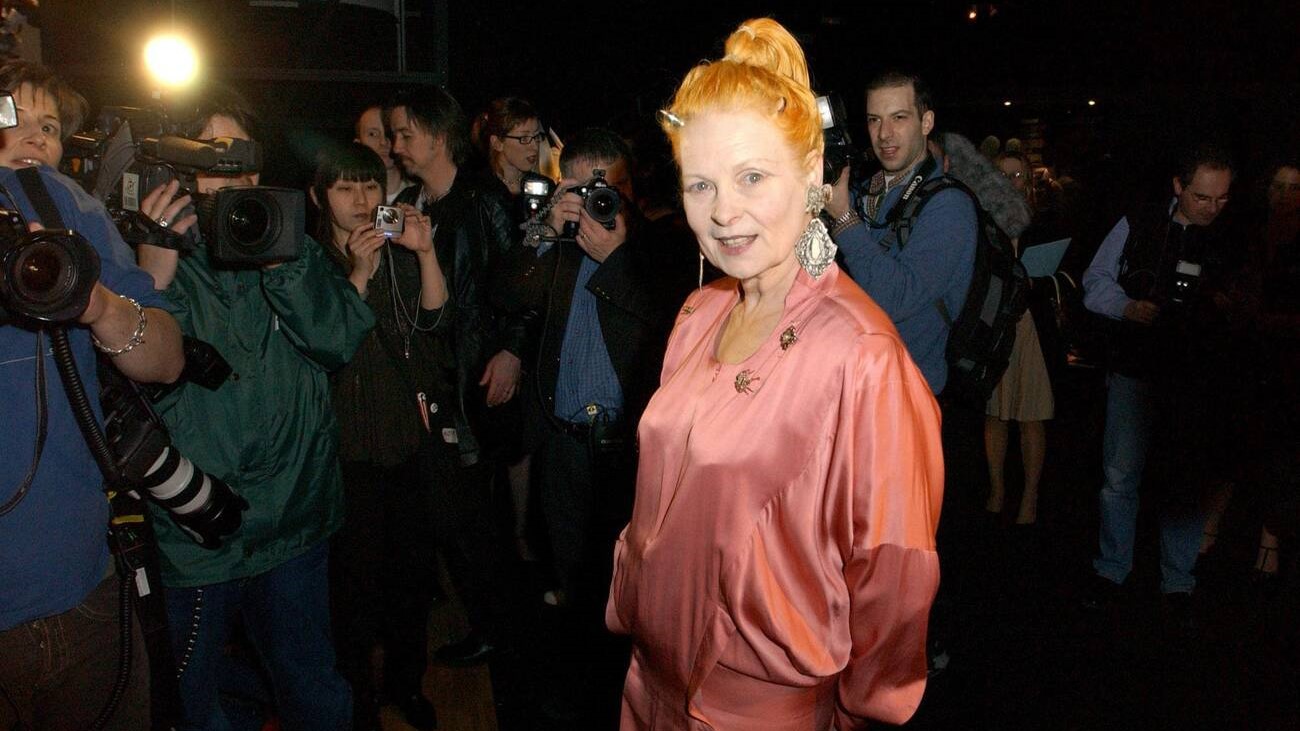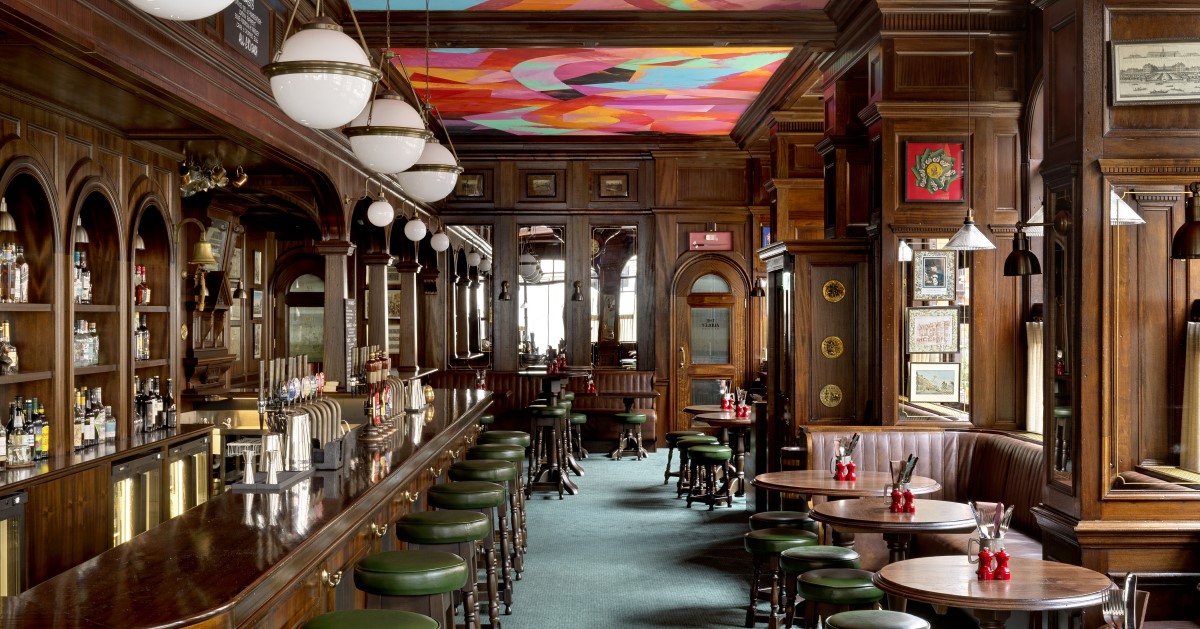Chef Tom Aikens, the owner of Michelin-starred Muse restaurant in Belgravia, reflects on his remarkable culinary career
Words: Cally Squires
Mews in 2020. You’ll find the chef rolling up his sleeves in the kitchen on the daily during the week – or popping to his favourite store The Fine Cheese Company – before he escapes to the countryside for well-deserved family time late on a Friday night.
Not that Aikens is in any way inclined to idle tendencies. He both mediates and trains hard with local PT Janet Malinowska while he’s working in Belgravia, with his wife enforcing a strict exercise ban at the weekend.
I sit down with him on one such precious Sunday off in The Cotswolds, where he’s rented a home since September 2019, although his connection to the area dates way back. A longtime pal of Nick Jones, Aikens helped his friend in the early days of Soho Farmhouse, creating a massive kitchen vegetable garden at the members club, for starters.
His true Cotswolds roots however, grew from working for the Bamford family back at the turn of the millennium. “I had just left Pied à Terre in London [where at 26 he became the youngest British chef to be awarded two Michelin stars] and I wanted to get out of the city, as I’d been there since I was 18.”
Having entrusted his CV to a private recruiter in the hope of a better work life balance, the phone was soon ringing from both Lady Bamford and Lady Weinberg. “I went and did a cook off between the two of them – they’re longtime buddies – and Carole offered me a job straightaway. I went all over the place cooking for the them privately which was lovely, Carole is an amazing woman.”
“Then she was talking about ideas for her [Daylesford] farm – and at that time everyone thought organic farming was a bit of a harebrained scheme – but she was so passionate, I was really amazed.”
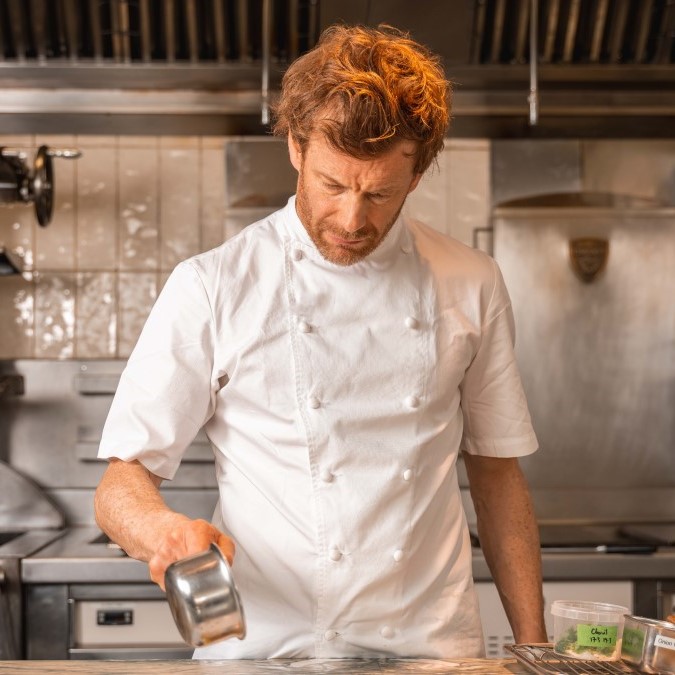
“I stayed with her for almost three years and that time really opened my eyes, because even then as a chef I didn’t have a really close relationship with the farmers. With Carole it really taught me about having a real connection with your producers. So when I did Tom’s Kitchen [his all-day dining restaurant in Chelsea], it was really about making the suppliers the heroes, and that was all down to Carole.”
After Tom’s Kitchen [which officially closed at the start of January 2020] Aikens was deliberating on the next move. “I hadn’t thought about opening another restaurant, but the one thing that made me do it – I was earning good money, working the hours I wanted, living in a nice house – is I was missing the adrenaline of the kitchen.”
Opening in early 2020 would surely be a kiss of death for most restauranteurs, but it was only a year later that Muse was deservedly awarded a Michelin star. Humbly, Aikens says “Thank God we had enough time to get critics in to review us [before lockdown], and we had three or four good reviews.”
In terms of Covid luck, if there is such a thing, because the restaurant had only just opened the team was still small. “Literally microscopic” says Tom. “There were five of us in the kitchen and two front of house. So everyone was furloughed, but then so many people left the hospitality industry [after the pandemic] – it was a time to stop and ponder and reevaluate their lifestyle, a time which they’d never had before.”
Aikens concedes that “you do have to be completely career-focussed in hospitality, there isn’t as much time for friends and family. You won’t get anywhere if you go into it half-heartedly.”
He suggests the staffing situation is slowly getting better now, “But even so, some restaurants and hotels are cutting their opening hours or removing lunch service because they can’t find staff to cover. The visa application process [since Brexit] is a big hit for a business, it costs over £4,000 and there is no guarantee the employee will stay with you. We had someone [who we sponsored for a visa] who only stayed for six months and then left.”
Despite this staffing crisis, which Aikens thinks is worse in the countryside than in town, he reveals fortunately that at Muse “we’re fine because we’ve cut the hours down of our staff dramatically, they have a choice of an AM or PM shift with the weekend off, or they can do an intense half a week on with the other half off.”
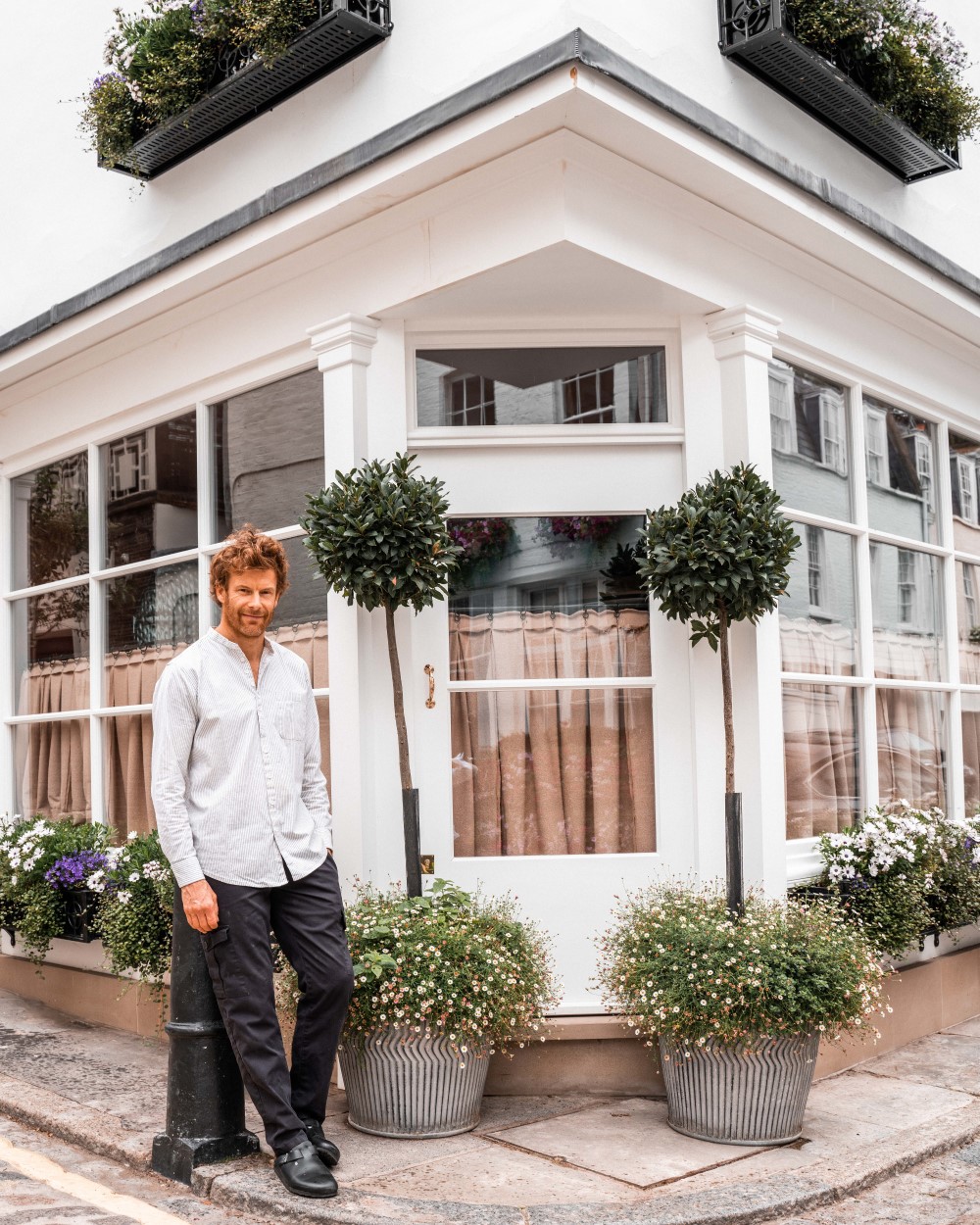
It’s a trend he’s pleased to say more and more restaurant owners are following, “although there are some who are on just two days off, which isn’t sustainable. Our guys still do 55 hours in those three and a half days, but they have a good quality of life on the other side with the rest of the week to do whatever they want. Since we’ve done that [working pattern shift] we haven’t had any turnover of staff at all, we’ve kept the same team for two years.
Speaking for his fellow country bumpkins, I hope Aikens will have his arm twisted to bring some of his magic to a pub outside of the city, but in terms of fine dining, he’s firm that Muse will be his swan song.
With that in mind, Aikens set out “to try and do things that hadn’t been done before” at Muse. This has manifested in clever a pop-up menu, which opens to reveal a beautiful cutout of the mews house which is home to the intimate, 25-cover Muse restaurant.
Wording inside adds further curiosity, each dish a nod to a childhood moment or memory, summarised as a riddle with just three ingredients. For example the “she sells seashells by the seashore” course – scallop, broccoli, truffle – keeps diners guessing what exactly will be presented.
The 3D menu was an idea that sweetly came from his two children’s pop-up books. “And I wanted it to be made out of wood because again, it’s more sustainable and something a bit different. We’re doing another one for our langoustine dish as a pop-up story, made from recycled sea plastic, which has been a project for nearly two years because it’s so hard to find a binder that hasn’t been done before.”
Hopefully that [project] will be done by this autumn, and again it leads back to an anecdote from his Norfolk childhood. “We had a huge back garden with a beautiful copper beech tree at the end which we [Tom has an identical twin brother, who is also a chef] loved to climb. It’s an interesting dish of roast langoustine with a pig’s trotter sauce, lardo and burnt apple puree which is infused with fragrant jasmine and vanilla, and then some sharpness of pickled apples.”
“We’re sensitive souls us chefs” he modestly jests. “It’s always nerve-wracking presenting a new dish, and there’s a parallel to me as young boy about to climb this tree, feeling a bit scared – but at the end of the day when you get to the top you’re elated because you’ve conquered it.”
Is he ever worried about running out of material in the memory bank, given that the team change a dish every five weeks? “I have lots of stories, and it shows a bit of personality and thought, rather than just writing a boring description, and I think people really appreciate that.”
As anyone who has been lucky enough to dine at Muse will agree. “Something we pride ourselves on is the staff are their own characters, they don’t read from a set text. We give them a framework and encourage them to be individuals, that way you don’t just have a space with no atmosphere or jovial fun.”
We part on a memory with a happy ending, as all good stories do. “My identical twin brother and I both decided to become chefs at the age of nine or 10 and always said we’d open a restaurant together when we grew up. Then when I was 21, he broke the news that he’d taken a job in America with the Roux brothers, and didn’t know how long he’d be away. I was crying and totally heartbroken, but then I thought, f*ck you I’ll do my own thing then.”
Luckily that thing worked out pretty well for our heartbroken brother, but I expect luck had nothing to do with it. And as for that fairytale ending, the brothers have been reunited at last, as Tom’s twin has recently moved back to England after 32 years stateside. Will they ever open that restaurant? That’s a whole new chapter.

